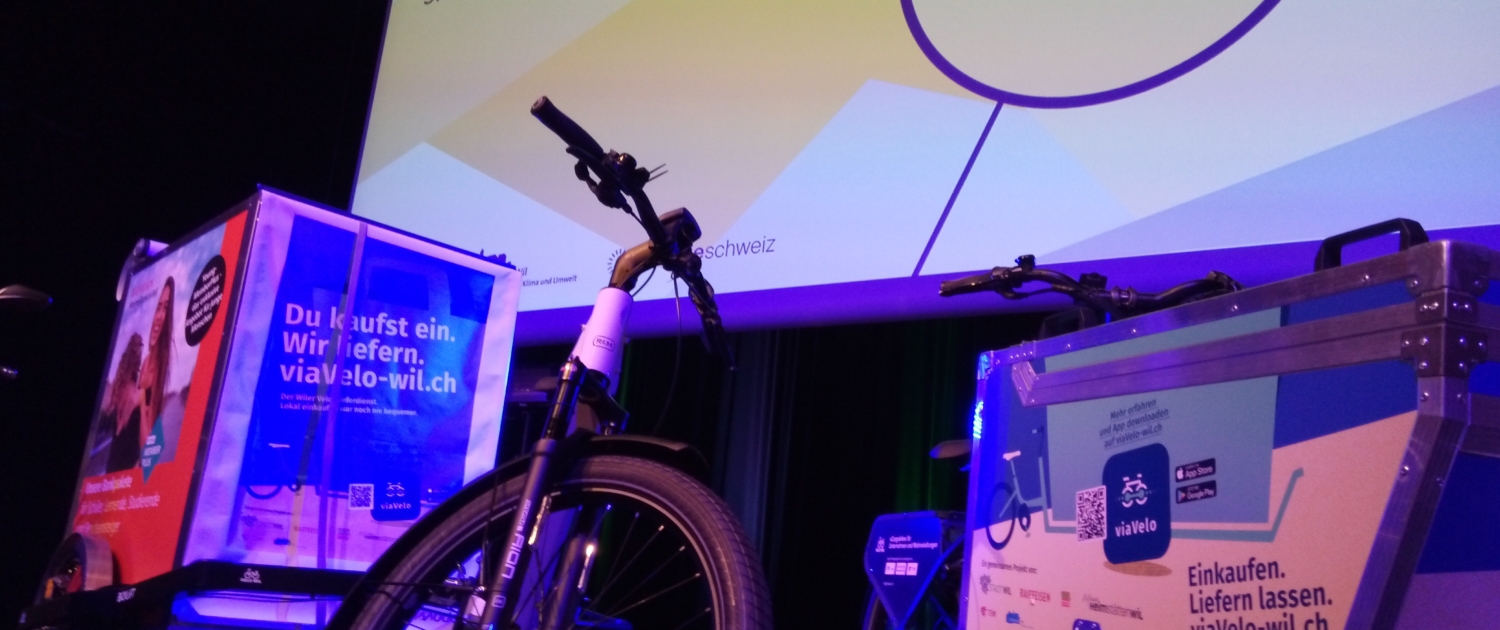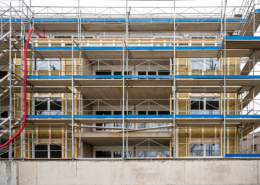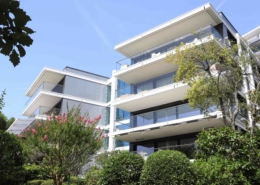Sustainable mobility in practice: the city of Will shows how it's done
"E-mobility for all", on-demand evening bus or ViaVelo home delivery service: the city of Wil in St. Gallen wants to become a role model for others in terms of sustainable mobility. It is participating in the Monamo programme (sustainable mobility models) launched by SwissEnergy. Energeiaplus shows where Wil is breaking new ground and asks where the challenges lie.
In 2019, the civic-minded city parliament declared a climate emergency. In a resolution it was stated: By 2030, the city administration and administration-related businesses should be climate neutral, and by 2050, the entire city of eastern Switzerland with its 25'000 inhabitants. Wil wants to achieve this goal with incentives and is now starting, among other things, with mobility - with a bouquet of offers.
All residents of Wil will receive a Mobility subscription free of charge for one year. They only pay for the kilometres driven and the duration of the rental. There were just under 350 Mobility customers before the campaign was launched at the beginning of September. By the end of October, there were already over 500. 700 city employees can also use all Mobility vehicles free of charge for their business trips. Eight vehicles are available at three locations. By the end of 2021, the entire Mobility fleet in Wil should also be electrified: The first city in Switzerland with 100% e-cars in sharing.
Shared Mobility is also promoting the city's two-wheelers. Two e-cargo bikes are available for hire. In addition, the city's population and businesses can test various e-cargo bikes and a large bicycle trailer for transports of up to 120 kilos. This bicycle trailer requires a special permit from the cantonal road traffic office.
From spring 2022, Wil will also have a new public transport service in the evening hours. The bus works according to the on-demand principle and replaces the evening taxi. It can be booked via app for virtual stops for all possible connections. The service is part of the public fare system.
An e-cargo bike home delivery service for shopping or a pick-up service for the disposal of waste that does not belong in household rubbish round off the initiative in Wils.
And how will all this be financed?
- with a contribution from the appropriation of profits of the Technische Betriebe Wil. Parliament decided in 2019 that this contribution would be used in defined projects for energy efficiency and for the replacement of fossil fuels.
- With contributions from the Monamo pot of SwissEnergy. 40 percent of the costs will be covered by the Swiss Federal Office of Energy as a subsidy. Specifically, half a million francs for the years 2021-2025 - approx. 100,000 francs per year.
- With own contributions and partnerships (e.g. with car-sharing provider Mobility, BUS Ostschweiz AG, the canton of St. Gallen, which has included the on-demand bus in its tariff system.
Stefan Grötzinger, Energy Officer of the City of Wil and Programme Manager of MONAMO WIL is the driving force behind the WIL sustainability package. Energeiaplus spoke to him about opportunities and challenges.
Energeiaplus: home bike delivery service, on-demand buses in off-peak hours, e-cargo bikes for hire. You are not reinventing the wheel with your services. What do you think makes WIL's offer stand out from the rest?
Stefan Grötzinger: For the middle-class city of Wil in eastern Switzerland, with its high degree of motorization, such offers are new. The MONAMO program challenges us to break new ground. With the "E-Mobility for all" services, the exclusive cargo trailer and the on-demand bus in the tariff system, we are unique in Switzerland.
What support do you feel among the population?
With public-private partnerships and the integration of citizens, associations, companies, schools, associations and politicians, we are creating Wiler Monamo ambassadors who act as multipliers for the population. In addition, we developed the measures in a participatory process and are always open to new ideas from the ranks of the population, businesses and associations.
We also have the "Early Adopters" vessel, where Wiler residents can act as test subjects, trying out new services in a laboratory environment and contributing suggestions for optimisation before we scale the services to the city area. This group is worth its weight in gold.
How popular are the services that have already been launched? Are they well received by the people of Wilhelmina?
The offers are, as mentioned, still new in Wil and for the time being have the aim of showing the people of Wil how to travel sustainably in a playful way - according to the motto "The proof of the pudding is in the eating". The SFOE also requires an impact analysis, and in addition to quantitative figures on usage, we will also conduct qualitative surveys on satisfaction among the population.
And what are the biggest challenges?
We can only achieve the goal of a net-zero society if we change our behaviour. These take time. I see this as a major challenge. We also need to get young people on board. They are very price-sensitive.
We therefore want to show that net-zero mobility can be fun and that testing it out can lead to a change in behaviour.
What role did the Monamo programme play in the launch of all these measures?
With the financial support, new projects can be implemented more quickly than usual in the city of Wil. In addition, we benefit from a nationwide network of experts that we can call on for projects as needed.
The Monamo programme is designed to run for five years. What happens after that? Will the offers be continued?
MONAMO Wil is intended to provide an impetus for other municipalities to implement sustainable mobility services. Due to the climate goals, it will continue in the same way after five years. MONAMO Wil now makes it possible to test new ideas for five years and, if possible, to scale them up for other communities. We will stay on it until 2050.
The most important facts about Monamo:
Communities with around 8,000 to 50,000 inhabitants were eligible to apply to Monamo. The aim is to develop and test innovative approaches to sustainable community mobility. Monamo municipalities are to become role models for other municipalities in the area of sustainable mobility and encourage others to follow suit.
SwissEnergy is providing the selected municipalities with advisory and financial support (max. CHF 500,000) for a maximum of five years. In addition to Wil, the city of Aarau also has a Monamo project.
Brigitte Mader, Communication, Swiss Federal Office of Energy
 Adrian Zeller, Hallowil.ch
Adrian Zeller, Hallowil.ch
 BFE/Brigitte MaderBotschafter in Sachen Schweizer Energiepolitik geht in den Ruhestand - Ein Rückblick
BFE/Brigitte MaderBotschafter in Sachen Schweizer Energiepolitik geht in den Ruhestand - Ein Rückblick  ShutterstockSuisse-France: un maillage énergétique essentiel
ShutterstockSuisse-France: un maillage énergétique essentiel  Gebäudeprogramm 2020: Sanierungsboom und hohe Nachfrage nach Fördergeldern
Gebäudeprogramm 2020: Sanierungsboom und hohe Nachfrage nach Fördergeldern  ShutterstockStockwerkeigentum up to date halten
ShutterstockStockwerkeigentum up to date halten 

 SLF/WSL/Empa
SLF/WSL/Empa
Dein Kommentar
An Diskussion beteiligen?Hinterlassen Sie uns Ihren Kommentar!